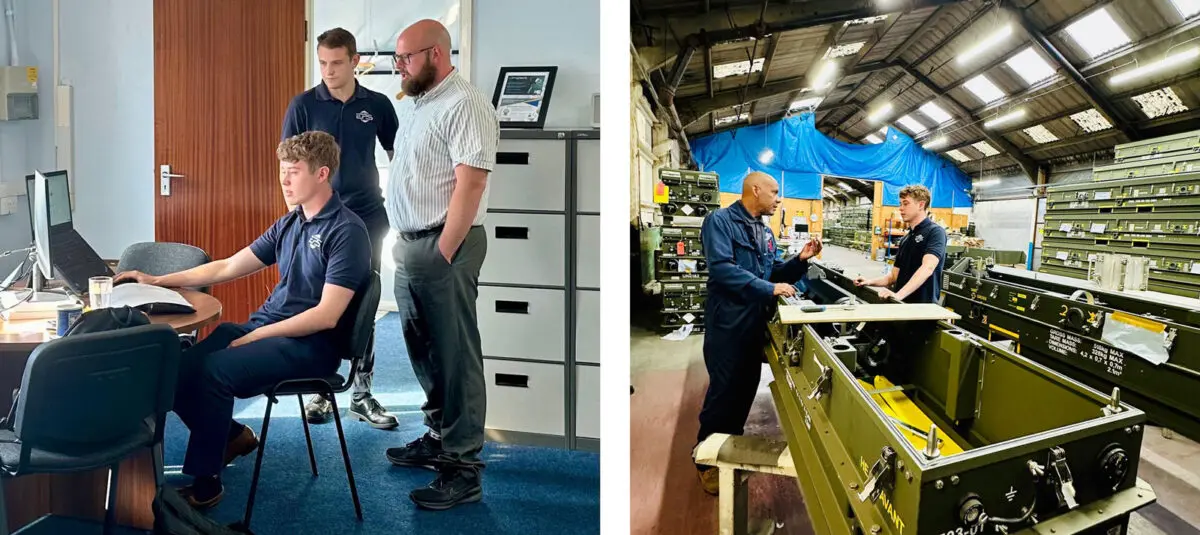At EPS we believe there’s no better way for the next generation of engineers to get valuable workplace experience and learn new skills than through a summer placement or year in industry.
We offer engineering study placements at our headquarters in Kent, UK, giving students the opportunity to get practical experience beyond the classroom in the world of work, supporting their studies and their development as a candidate when applying for graduate jobs.

Ollie is studying Aerospace Engineering at the University of Nottingham. His Masters course will include a year in the engineering or aerospace industry. He completed a summer placement with us following his second year of study; we spoke to Ollie about his experience and the benefits of work experience.
Why did you choose a career in aerospace engineering?
Basically, I like a challenge and I know aerospace engineering is very difficult. I’m very interested in physics and I’ve always been interested in the space side of it specifically. I enjoy designing and making things and solving problems so, combining these, you get aerospace engineering and I thought that would be the right career path for me.
What are the advantages of work placements?
I think it’s really good for students as it helps improve your CV and for me, I feel it will put me ahead of other candidates as I have had workplace experience in design within the engineering industry. It shows that my skills are transferrable from university to the workplace. In some cases, if you do well in either your summer placement or year in industry, and they know you fit into the engineering design team, they may consider you for a permanent position once you’ve finished your degree. It’s given me the context to better apply what I’ve learnt so far at university and made me even more excited about my career choice.
What skills and knowledge have you learnt during your placement?
It’s been very informative. It is good knowing a lot of the theory from university, but applying it in a hands-on, real-life setting is very different.
When I first started, I was given training on a system called SolidWorks which is a CAD modelling computer software. It’s different to the one we have learned at university for the aerospace sector, so it’s been useful to learn new skills.
I was expecting to be doing very basic tasks which is what you often find on placements, but from the start I have been working on actual projects and contributing to the team which has been great.
I’ve learnt how to do drawings professionally in a way that means other people and departments can interpret them correctly, that’s been really helpful and a good insight into how different departments or companies work together.
The design team here are very experienced and knowledgeable and I have been learning from them how to approach problems and thinking more like an engineer, not like a university student, because there is quite a big difference.
It has also made a difference to know what I am designing is going to be used and has a purpose. You are designing for a client so you want them to feel completely satisfied with that product.
How do you think this experience will benefit you back at university?
It has given me a very different way of approaching problems, particularly in a more streamlined way as that’s how it has to be once you’re in industry.
I also think the parts that I design in the future are going to be a lot more practical.
Generally, it’s going to benefit me by putting things into context and to know why you’re learning stuff and how the theory is going to be applied and help me in the future.
What advice would you give to students considering a work experience placement?
I’d 100% recommend it. You learn so much about the workplace and your chosen profession and of course, it’s always going to look good on your CV . It also helps clarify that your chosen career is right for you.
When looking for a placement I would recommend approaching companies to say you’re available. Go onto LinkedIn to message companies that you’re interested in to say you’re looking for a summer placement. Don’t just rely on companies advertising online, because in my experience I wouldn’t have known about EPS or that they did placements
